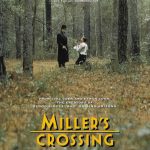Taxi Driver (1976)


“Taxi Driver,” directed by Martin Scorsese and released in 1976, is a groundbreaking psychological thriller that delves into the mind of a disturbed individual living in a city plagued by corruption and moral decay. Written by Paul Schrader, the film stars Robert De Niro as Travis Bickle, a lonely and disillusioned Vietnam War veteran who becomes increasingly alienated from the world around him. With its haunting visuals, powerful performances, and profound themes, “Taxi Driver” has cemented its status as a classic of American cinema.
The film opens with Travis Bickle, who is struggling to adjust to civilian life after serving in Vietnam. Working as a night-time taxi driver in New York City, he navigates through the city’s gritty underbelly, which serves as a reflection of his deteriorating mental state. Scorsese’s use of the city as a character in itself emphasizes the themes of isolation and alienation. The neon lights and dark alleys of New York create a surreal, almost nightmarish atmosphere, encapsulating Travis’s sense of disconnection and despair.
Scorsese’s use of the city as a character in itself emphasizes the themes of isolation and alienation. The neon lights and dark alleys of New York create a surreal, almost nightmarish atmosphere, encapsulating Travis’s sense of disconnection and despair.
Travis’s internal monologue provides insight into his psyche, revealing a man grappling with feelings of loneliness, frustration, and a desire for purpose. His experiences as a taxi driver expose him to the darker side of humanity, leading him to develop a distorted view of the world. The film masterfully captures his descent into madness, culminating in a violent obsession with cleansing the city of its perceived filth. The iconic line, “You talking to me?” epitomizes his isolation and yearning for recognition in a world that seems indifferent to his existence.











